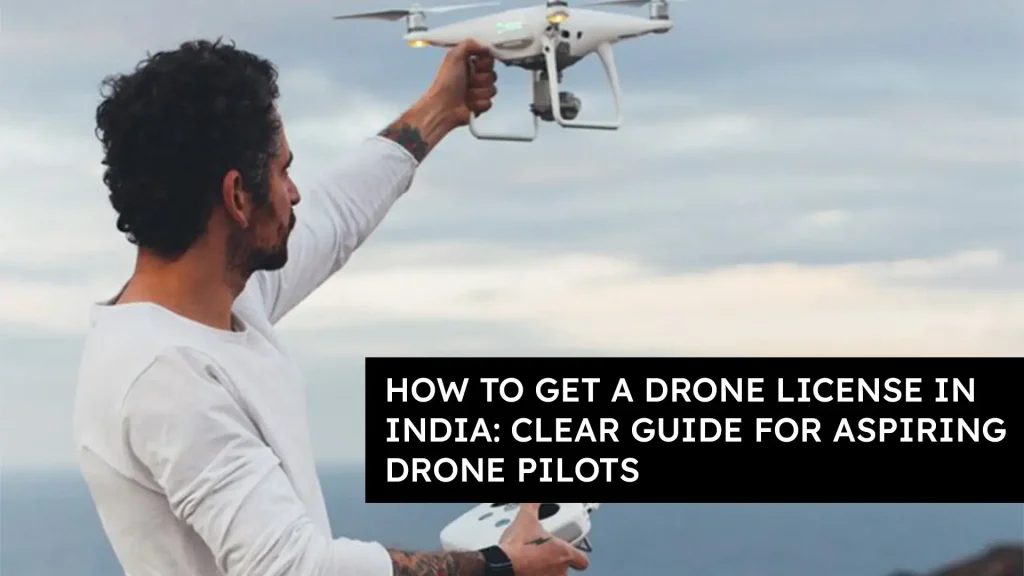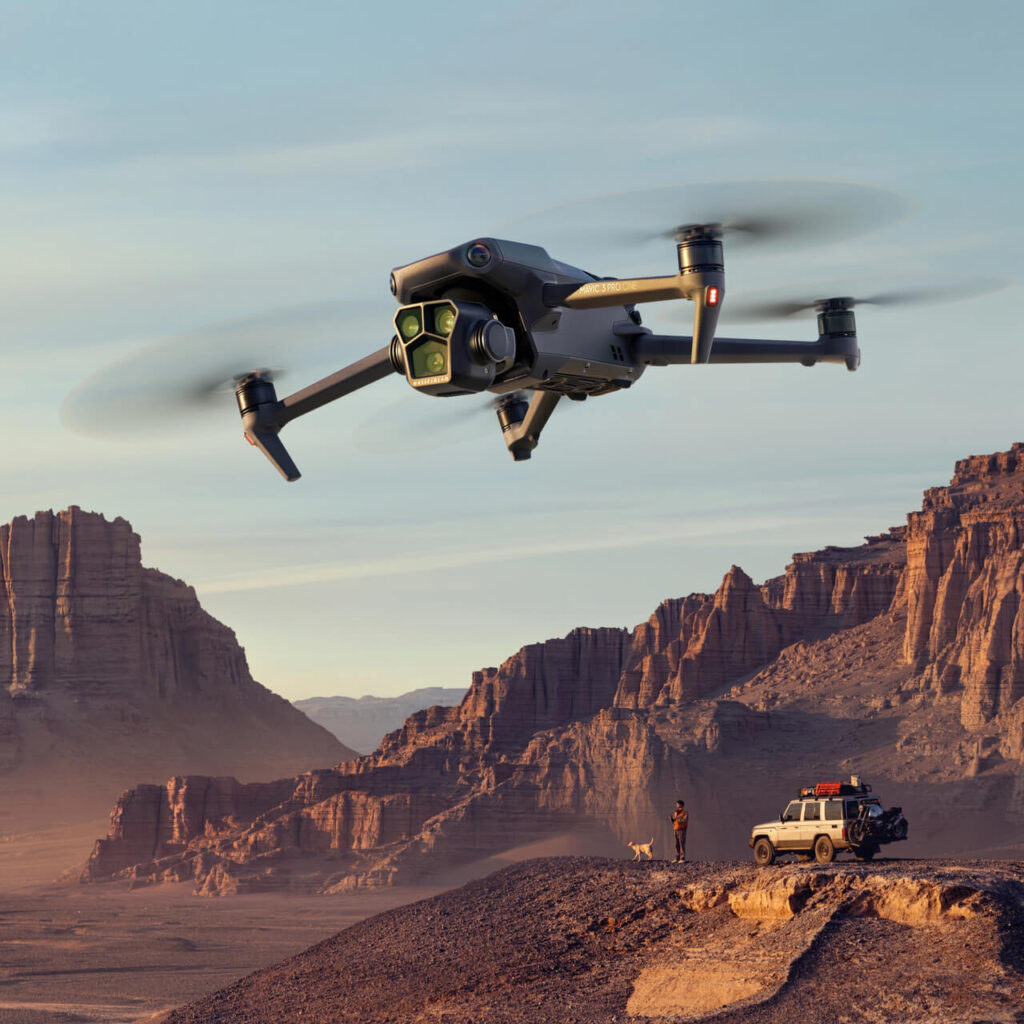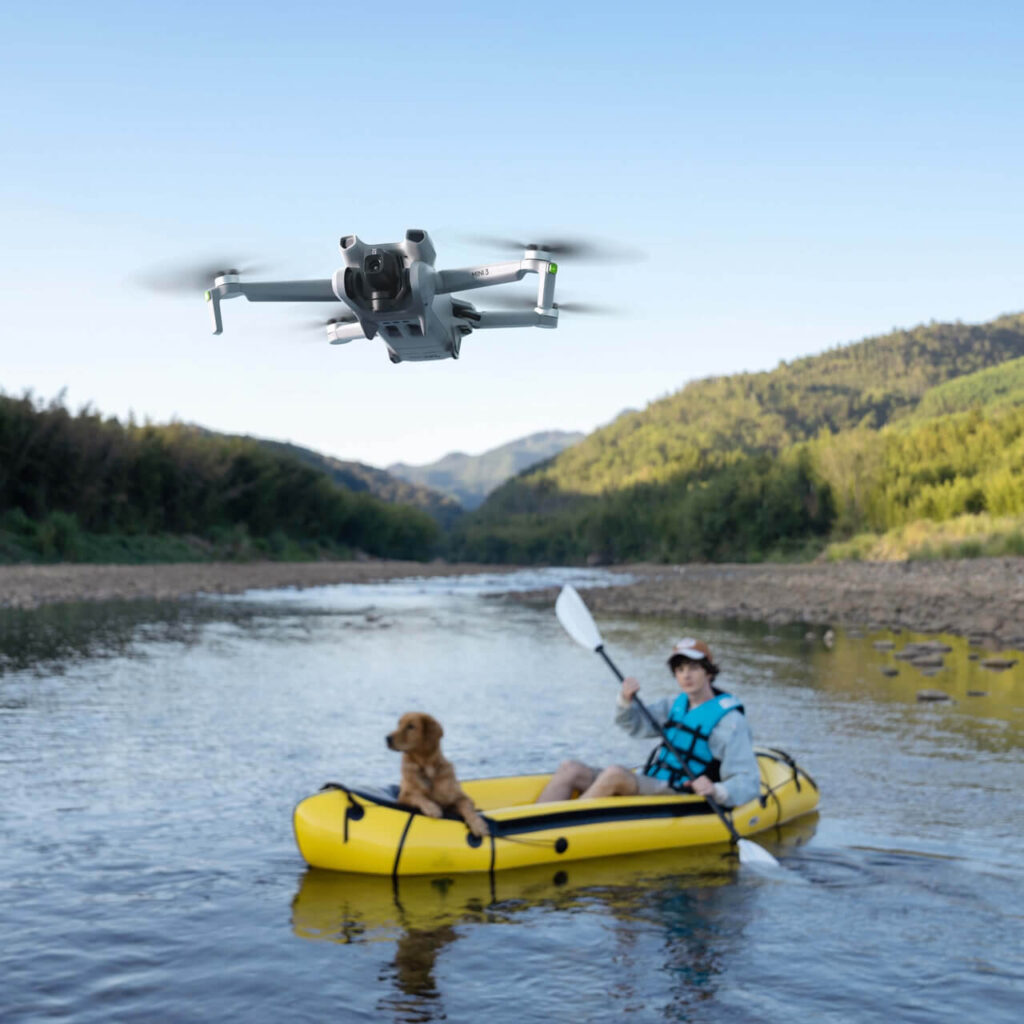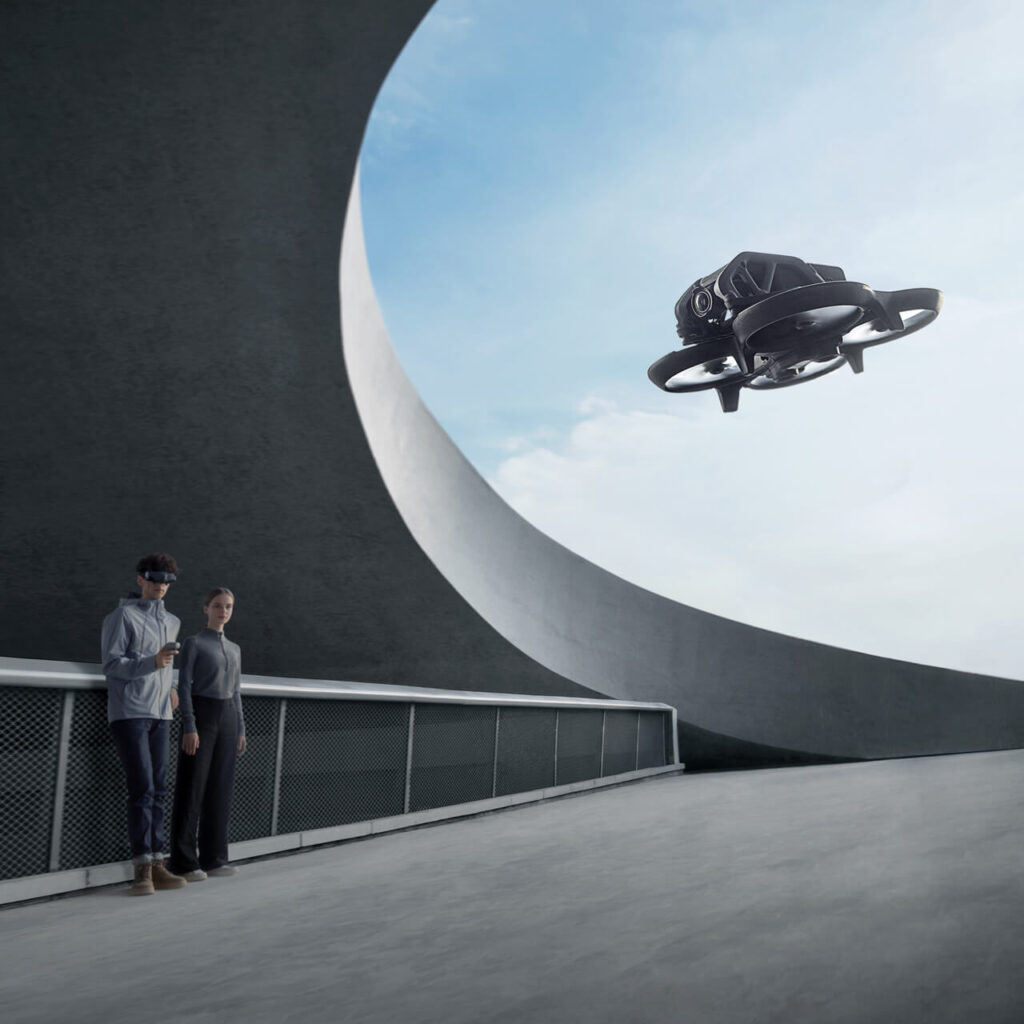Drones have become increasingly popular in India in recent years, with many people using them for various purposes, from photography to agriculture. However, to operate a drone in India, you need to obtain a drone license from the Directorate General of Civil Aviation (DGCA). This license is mandatory and applies to both commercial and recreational drone operators.
Understanding the rules and regulations surrounding drones in India is crucial for anyone looking to obtain a drone license. The DGCA has implemented strict guidelines to ensure the safe operation of drones in Indian airspace. Failure to comply with these regulations can result in hefty fines and even imprisonment. Therefore, it is important to have a clear understanding of the process of obtaining a drone license in India, including the eligibility criteria, application process, and testing and certification.
Key Takeaways
- A drone license is mandatory for both commercial and recreational drone operators in India.
- The DGCA has implemented strict guidelines to ensure the safe operation of drones in Indian airspace.
- To obtain a drone license in India, you need to meet certain eligibility criteria, follow the application process, and pass testing and certification.
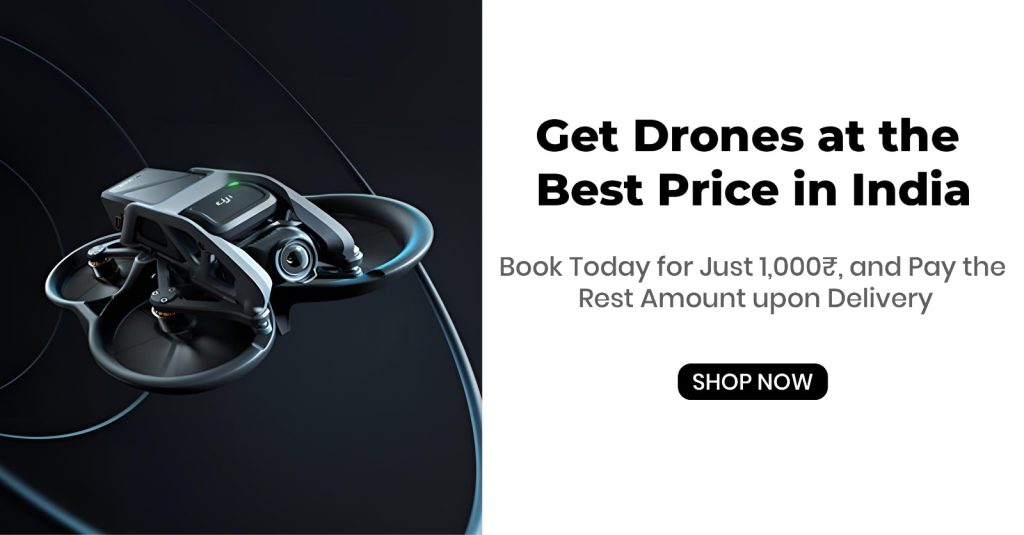
Understanding Drones in India
Drones, also known as Remotely Piloted Aircraft (RPA), are becoming increasingly popular in India. They are used for various purposes such as aerial photography, surveillance, agriculture, and delivery services. However, to operate a drone in India, one needs to follow the rules and regulations set by the Directorate General of Civil Aviation (DGCA).
In India, drones are categorized into five different categories based on their maximum take-off weight. The categories range from nano drones, which weigh less than 250 grams, to large drones, which weigh more than 150 kilograms. Each category has different rules and regulations that need to be followed.
To operate a drone in India, one needs to obtain a Unique Identification Number (UIN) and an Unmanned Aircraft Operator Permit (UAOP) from the DGCA. The UIN is a unique identification number that needs to be displayed on the drone, while the UAOP is a permit that allows the operator to fly the drone.
It is also important to note that drones cannot be flown in certain areas such as near airports, military installations, and other sensitive areas. The DGCA has designated certain areas as “no-fly zones” where drones cannot be flown. It is the responsibility of the operator to ensure that they are not flying their drone in a restricted area.
In addition, the DGCA has also set a maximum altitude limit for drones. Drones cannot be flown above 400 feet, and they must always be within the operator’s line of sight. The operator must also ensure that the drone is not causing any harm to people, animals, or property.
In summary, operating a drone in India requires obtaining a UIN and a UAOP from the DGCA, following the rules and regulations set by the authority, and ensuring that the drone is not flown in restricted areas or causing harm to people, animals, or property.
Why You Need a Drone License in India
In India, flying a drone without a license is illegal. The government has set up strict regulations to ensure the safety of people, property, and airspace. Violating these regulations can result in hefty fines, confiscation of the drone, and even imprisonment. Therefore, it is essential to obtain a drone license before flying a drone in India.
Here are some reasons why you need a drone license in India:
Legal Requirement
As per the Ministry of Civil Aviation, all drones in India must be registered and have a Unique Identification Number (UIN). Additionally, the operator must obtain a Remote Pilot License (RPL) or a Student Remote Pilot License (SRPL) to fly a drone legally. Without these licenses, flying a drone is considered illegal and can result in severe consequences.
Safety Regulations
The government has set up strict safety regulations to ensure the safety of people, property, and airspace. Flying a drone without a license can result in accidents, collisions, and damage to property. Therefore, obtaining a drone license ensures that the operator has the necessary knowledge and skills to fly a drone safely.
Commercial Use
If you plan to use a drone for commercial purposes, such as aerial photography, surveying, or delivery, you must obtain a drone license. The government has set up separate regulations for commercial drone operations, and operators must follow them strictly. Obtaining a drone license enables you to legally use a drone for commercial purposes and avoid any legal issues.
International Travel
If you plan to travel internationally with a drone, you must obtain a drone license. Different countries have different regulations for drone operations, and some may not allow drones at all. Therefore, obtaining a drone license enables you to legally travel with a drone and avoid any legal issues in foreign countries.
In conclusion, obtaining a drone license in India is essential for legal, safety, commercial, and international travel purposes. It ensures that the operator has the necessary knowledge and skills to fly a drone safely and legally.
Types of Drone Licenses in India
To fly a drone in India, one must have a valid drone license issued by the Directorate General of Civil Aviation (DGCA). There are two types of drone licenses in India – Unmanned Aircraft Operator Permit (UAOP) and Remote Pilot License (RPL).
Unmanned Aircraft Operator Permit (UAOP)
The UAOP is a permit that is issued to the operator of the drone. This permit is required for individuals or organizations that want to fly drones for commercial purposes. The UAOP is valid for five years and can be renewed after that period. To obtain a UAOP, the operator must submit an application to the DGCA along with the required documents.
The following table shows the documents required to obtain a UAOP:
| Document | Details |
|---|---|
| Form CA-1 | Application Form |
| Form CA-2 | Details of the Unmanned Aircraft System (UAS) |
| Form CA-3 | Details of the Remote Pilot |
| Form CA-4 | Security Program Manual |
| Insurance | Third Party Liability Insurance |
| Security Clearance | Security Clearance from the Ministry of Home Affairs |
| Flight Manual | Flight Manual of the UAS |
| Maintenance Manual | Maintenance Manual of the UAS |
| Log Book | Log Book of the UAS |
| Noise Certificate | Noise Certificate of the UAS |
| Permission for Aerial Work | Permission for Aerial Work from the Ministry of Defence |
Remote Pilot License (RPL)
The RPL is a license that is issued to the pilot of the drone. This license is required for individuals who want to fly drones for commercial purposes. To obtain an RPL, the pilot must undergo training from a DGCA-approved training organization and pass the DGCA-approved exam.
The following table shows the eligibility criteria for obtaining an RPL:
| Criteria | Details |
|---|---|
| Age | Must be at least 18 years old |
| Education | Must have passed 10th standard or equivalent |
| Medical Fitness | Must be medically fit |
| Training | Must have undergone training from a DGCA-approved training organization |
| Exam | Must have passed the DGCA-approved exam |
In conclusion, obtaining a drone license in India requires the operator to obtain a UAOP and the pilot to obtain an RPL. The process of obtaining these licenses involves submitting the required documents and undergoing training and examination. It is important to follow the rules and regulations set by the DGCA to ensure safe and legal operation of drones in India.
Eligibility Criteria for Drone License
To obtain a drone license in India, an individual must meet certain eligibility criteria. These criteria are set by the Directorate General of Civil Aviation (DGCA) and must be met to ensure safety and security in the airspace.
Age Limit
The first eligibility criteria for obtaining a drone license is the age limit. To apply for a drone license in India, the applicant must be at least 18 years old.
Educational Qualification
The educational qualification required for obtaining a drone license in India is a minimum of 10th grade or equivalent. The applicant must have passed the 10th-grade examination from a recognized board.
Security Clearance
The applicant must obtain security clearance from the Ministry of Home Affairs before applying for a drone license. This clearance is mandatory and ensures that the applicant has no criminal record or links to any illegal activities.
Medical Fitness
The applicant must be medically fit to operate a drone. The DGCA has specified the medical fitness requirements for drone pilots, which include normal vision, good physical and mental health, and no history of epilepsy or other medical conditions that could affect the safety of the flight.
Training
Before applying for a drone license, the applicant must complete the necessary training from a DGCA-approved drone training school. The training covers various aspects of drone operation, including flight planning, navigation, emergency procedures, and more.
Insurance
Finally, the applicant must have insurance coverage for the drone. The insurance must cover third-party liability and damage to property. The insurance amount varies depending on the category of the drone and its intended use.
Meeting these eligibility criteria is essential for obtaining a drone license in India. It ensures that the drone operator is qualified, competent, and capable of operating the drone safely and responsibly.
How to Apply for a Drone License
If you want to fly a drone in India, you need to apply for a drone license from the Directorate General of Civil Aviation (DGCA). Here are the steps to follow to apply for a drone license in India.
Registration Process
To apply for a drone license in India, you need to register on the Digital Sky platform. Here are the steps to follow:
- Go to the Digital Sky website and create an account.
- Fill in your personal details and upload a valid ID proof.
- Choose your profile type as “Remote Pilot” or “Manufacturer”.
- Select the category of drone you want to operate.
- Upload the training certificate if necessary.
- Select the type of drone and enter the drone’s details.
- Submit the application and pay the registration fee of INR 1000.
Once you have completed the registration process, you will receive a Unique Identification Number (UIN) for your drone.
Documents Required
Here are the documents you need to submit while applying for a drone license in India:
- Identity proof: Aadhaar Card, Passport, Voter ID, Driving License, etc.
- Address proof: Aadhaar Card, Passport, Voter ID, Driving License, etc.
- Drone insurance: Third-party liability insurance covering the entire duration of the drone’s operation.
- Security clearance: Security clearance from the Ministry of Home Affairs (MHA) for commercial drone operations.
Make sure to keep all the necessary documents ready before starting the registration process.
In conclusion, applying for a drone license in India is a straightforward process, but it requires careful attention to detail. By following the steps outlined above, you can get your drone license and start flying your drone legally in India.
Testing and Certification
To obtain a drone license in India, one must pass a test and obtain certification from the Director-General of Civil Aviation (DGCA). The test is designed to ensure that the drone operator has a thorough understanding of drone regulations, safety procedures, and flying techniques.
The DGCA has authorized several organizations to conduct the drone pilot certification process, including the National Small Industries Corporation (NSIC) and the Quality Council of India (QCI). These organizations offer training courses and conduct tests to evaluate the competency of the drone pilots.
The training courses cover various topics, including drone regulations, airspace restrictions, and emergency procedures. It also includes practical training on flying techniques, such as takeoff, landing, and maneuvering.
The certification process involves a written test and a practical test. The written test consists of multiple-choice questions that evaluate the candidate’s knowledge of drone regulations and safety procedures. The practical test assesses the candidate’s ability to operate a drone safely and effectively.
Once the candidate passes both the written and practical tests, they will receive a remote pilot certificate from the DGCA. The certificate is valid for five years and can be renewed upon expiration.
It is essential to note that drone operators must follow all regulations and guidelines set by the DGCA to maintain their certification. Failure to comply with the regulations can result in the suspension or revocation of the remote pilot certificate.
In conclusion, obtaining a drone license in India requires passing a test and obtaining certification from the DGCA. The process involves training courses, a written test, and a practical test. Drone operators must follow all regulations and guidelines set by the DGCA to maintain their certification.
Renewal and Validity of Drone License
Once a drone license is obtained, it is important to keep in mind the renewal and validity period. As per the liberalized drone rules, 2021, the remote pilot license fee has been reduced to INR 100 for all categories of drones, and it is valid for 10 years.
After the completion of the validity period, the drone license needs to be renewed. The renewal process is similar to the registration process, and it can be done through the Digital Sky platform. The user needs to log in to the platform, navigate to the list of UAS, and apply for the renewal of the license.
It is important to note that the renewal process must be completed before the expiration of the license. If the license is not renewed before the expiration date, the user may face penalties and legal consequences.
In addition to the renewal process, it is also important to keep the license valid by following the rules and regulations set by the Directorate General of Civil Aviation (DGCA). Any violation of the rules and regulations may result in the suspension or cancellation of the license.
Therefore, it is essential to keep the license valid and renewed to ensure the safe and legal operation of the drone.
Penalties for Violations
The Drone Rules, 2021, have laid out various penalties for violations of the regulations. These penalties are categorized based on the type of violation and its severity.
Maximum Penalty
The maximum penalty for violations of the Drone Rules, 2021, has been reduced to INR One lakh. Earlier, it was several lakhs. The reduction in the maximum penalty is a welcome move that will encourage more people to adopt drone technology and use it for various applications.
Types of Violations and Penalties
The following table outlines the types of violations and the corresponding penalties under the Drone Rules, 2021.
| Type of Violation | Penalty |
|---|---|
| Flying without a valid permit or authorization | INR 25,000 |
| Flying in a no-fly zone | INR 50,000 |
| Operating a drone that is not registered | INR 25,000 |
| Operating a drone that is not airworthy or not maintained as per the prescribed standards | INR 25,000 |
| Operating a drone that is not equipped with the necessary safety features | INR 25,000 |
| Operating a drone in a careless or reckless manner | INR 25,000 |
| Operating a drone in a manner that endangers the safety or security of any person or property | INR 50,000 |
| Failure to produce documents or information required by the authorities | INR 25,000 |
It is important to note that these penalties are not exhaustive and the authorities may impose additional penalties based on the severity of the violation.
Enforcement of Penalties
The enforcement of penalties for violations of the Drone Rules, 2021, is carried out by the authorities designated by the Ministry of Civil Aviation. These authorities have the power to seize the drone and any other equipment used in the violation. They may also initiate legal proceedings against the violator.
In conclusion, it is important for drone operators to comply with the regulations laid out in the Drone Rules, 2021, to avoid penalties and legal consequences. The penalties for violations are designed to ensure the safe and responsible use of drone technology in India.
Conclusion
Getting a drone license in India is a straightforward process, but it requires some effort and patience. The new drone regulations in India in 2021 have made it easier for people to register their drones and obtain a license. The process involves registering with the Digital Sky Platform, selecting the appropriate license category, and obtaining certification and compliance.
The user must register with the Digital Sky Platform, which is an online platform launched by DGCA to ease down the entire registration and documentation procedure. The platform requires some basic steps to be followed, including providing personal and drone details, uploading necessary documents, and paying the registration fee. Once registered, the user can apply for a drone license by selecting the appropriate license category based on the drone’s weight and usage.
The user must also obtain certification and compliance, which involves getting the drone certified, importing and obtaining foreign approval, and complying with the rules and regulations set by DGCA. The user must also register their drone with DGCA, which involves selecting the category of licensing based on the drone’s weight and usage.
Frequently Asked Questions
How do I register my drone on the Digital Sky platform in India?
To register your drone on the Digital Sky platform in India, you need to visit the official website and create an account. After creating an account, you can apply for a Unique Identification Number (UIN) and an Unmanned Aircraft Operator Permit (UAOP) for your drone. It is mandatory to register your drone on the Digital Sky platform before operating it in India.
What is the process to obtain a drone license in India?
To obtain a drone license in India, you need to apply for a Remote Pilot License (RPL) from the Directorate General of Civil Aviation (DGCA). The RPL is a certification that allows you to operate a drone in India. To apply for the RPL, you need to complete the necessary training and pass the required tests.
What are the qualifications required to become a drone pilot in India?
To become a drone pilot in India, you need to meet the following qualifications:
- You must be at least 18 years old.
- You must have completed a ground training program approved by the DGCA.
- You must have completed a practical training program approved by the DGCA.
- You must have passed the RPL examination conducted by the DGCA.
Is it mandatory to obtain a permit to fly a drone in India?
Yes, it is mandatory to obtain a permit to fly a drone in India. You need to obtain a UAOP from the DGCA before operating a drone in India. The UAOP is a permit that allows you to operate a drone in a specific area and for a specific purpose.
How much does it cost to apply for a drone license online in India?
The cost of applying for a drone license online in India varies depending on the type of license you are applying for. The fee for a Remote Pilot License (RPL) is INR 3000, and the fee for a UAOP is INR 1000.
What is the average salary of a drone pilot in India?
The average salary of a drone pilot in India varies depending on the level of experience and the type of job. According to payscale.com, the average salary of a drone pilot in India is INR 350,000 per year. However, this can vary based on factors such as location, industry, and level of experience.

